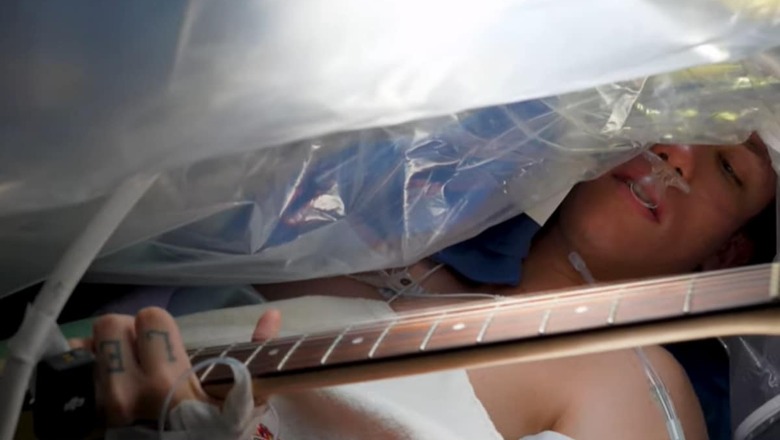
views
A man underwent brain surgery while strumming his guitar at the Sylvester Comprehensive Cancer Center in Florida. Christian Nolen, an enthusiastic guitar player, faced a tumour in his right frontal lobe, which affected his left-hand dexterity and prompted an innovative approach to surgery.
The surgical team, led by Dr Ricardo Komotar, director of the brain tumour program at Sylvester, aimed to evaluate and protect Nolen’s manual dexterity during the procedure. Speaking to Fox News Digital, Dr Komotar highlighted the importance of awake surgery when tumours impact critical brain functions, emphasising the need for continuous patient monitoring to avoid unintended harm.
For the unversed, manual dexterity is the skilful and coordinated use of your hands and fingers. It includes performing tasks that demand precise movements, such as handling small objects, using tools or playing a musical instrument. When doctors emphasise protecting manual dexterity in brain surgery, they aim to guarantee that a person can maintain effective hand use post-procedure. In Christian Nolen’s situation, playing the guitar during surgery assisted doctors in observing and securing his hand skills.
Nolen’s surgery, scheduled ten days after the tumour discovery, shocked him when doctors proposed he remain awake and play the guitar. Dr. Komotar explained that staying awake allowed them to receive real-time feedback on brain function, making the surgery safer. Given Nolen’s passion for guitar playing, it became the ideal tool to monitor the effects of the tumour on his motor skills.
When a tumour is close to a vital part of the brain that manages functions like speaking, understanding language, or movement, the preferred approach is to conduct the surgery with the patient awake. This allows for continuous monitoring to promptly detect any potential disruption to normal brain functions, as explained by Komotar.
When the patient is under anaesthesia and asleep, the surgical team cannot receive immediate feedback. In such cases, the surgical procedures become riskier, as there is a possibility of unintentionally removing a tumour that affects regular brain functions and causing harm without the awareness of the medical team.
Initially sceptical, Nolen, in an email to Fox News Digital, admitted the proposal felt like something out of a movie. However, considering the potential risks of full sedation, he embraced the unique experience to safeguard his motor skills. Nolen’s introduction to the surgical team and thorough pre-surgery briefings helped ease any anxieties.
During the open craniotomy, Nolen was initially asleep but awakened during a crucial phase. Overwhelmed, he was handed a guitar and asked to play. Fighting the urge to sit up, Nolen, with a reassuring hand from the care team, immersed himself in playing tunes by Deftones and System of a Down. The surgeons, removing the tumour, continuously monitored his hand function, preventing any harm as the tumour touched the brain’s control centre for hand movement.
The surgery, described by Nolen as “wild," was a success. Going home the day after, he reported an improved quality of life. Despite initial post-surgery challenges, Nolen, supported by a strong network, focused on the positive. Now back at the gym and playing the guitar, he sees significant improvement in his left hand.
Awaiting final pathology results, Nolen anticipates follow-up treatment with six weeks of radiation and chemotherapy.
















Comments
0 comment